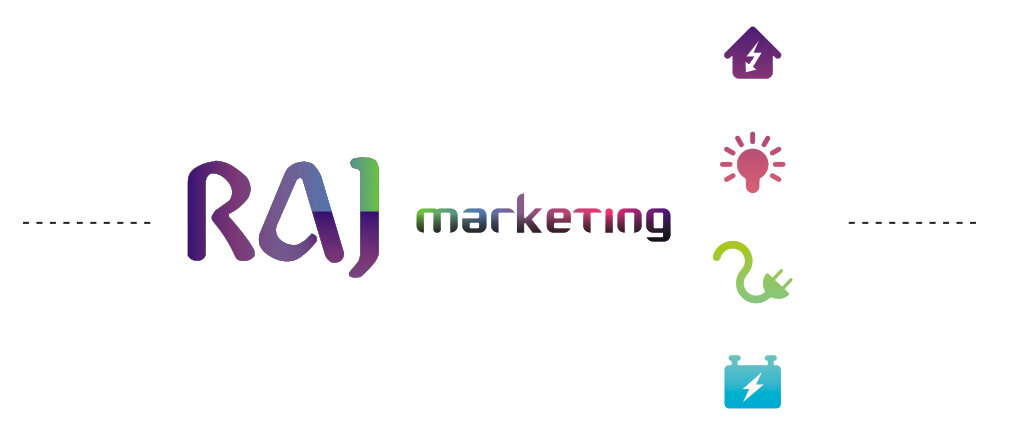electrical protection devices
MCB, MCCB, RCCB, and ELCB are circuit breakers but all of them are designed for serving a specific purpose.
MCB
MCB stands for Miniature Circuit Breaker. It automatically switches OFF electrical circuit during any abnormal condition in the electrical network such as overload & short circuit-conditions. However, fuse may sense these conditions but it has to be replaced though MCB can be reset. The MCB is an electromechanical device which guards the electric wires &electrical load from overcurrent so as to avoid any kind of fire or electrical hazards. Handling MCB is quite safer and it quickly restores the supply.When it comes to house applications, MCB is the most preferred choice for overload and short circuit protection. MCB can be reset very fast & don’t have any maintenance cost. MCB works on bi-metal respective principle which provides protection against overload current & solenoid short circuit current.
MCCB
MCCB stands for Moulded Case Circuit Breaker. It is another type of electrical protection device which is used when load current exceeds the limit of a miniature circuit breaker. The MCCB provides protection against overload, short circuit faults and is also used for switching the circuits. It can be used for higher current rating and fault level even in domestic applications. The wide current ratings and high breaking capacity in MCCB find their use in industrial applications. MCCB can be used for protection of capacitor bank, generator protection and main electric feeder distribution. It offers adequate protection whenever an application requires discrimination, adjustable overload setting or earth fault protection.
RCCB
RCCB stands for Residual Current Circuit Breaker. This residual current device is basically an electrical wiring device that disconnects the circuit whenever there is leakage of current flow through the Human body or the current is not balanced between the phase conductor. It is the safest device to detect and trip against electrical leakage currents, thus ensure protection against electric shock caused by direct contacts. RCCB is generally used in series with an MCB which protects them from over current and short circuit current. Both phase and neutral wires are connected through a RCCB device. These are an extremely effective form of shock protection&widely used for protection from a leakage current of 30,100 & 300mA. It is essential lifesaving equipment used to protect the human body from electrical and is mandatory in many states for domestic installation.
ELCB
ELCB stands for Earth Leakage Circuit Breaker. They have the same function as RCCB but are voltage sensor devise. However, this is an old technology & is not in common use. RCCB being a current sensitive device have a better advantage over ELCB as under
Isolator
An isolator is a mechanical switching device that, in the open position, allows for isolation of the input and output of a device. It differs from a switch in that it is intended to be opened when the circuit is not carrying current. It is a device used for isolating a circuit or equipment from a source of power.
Difference between MCB and MCCB
MCB
It stands for Miniature Circuit Breaker.
Rated current not more than 125 Ampere.
Its interrupting current rating is under 10KA
Judging from their power capacities, MCB is mainly used for low Breaking capacity requirement mainly domestic.
Its trip characteristics are normally not adjustable since they basically cater to low circuits.
MCCB
It stands for Moulded Case Circuit Breaker.
Rated Current up to 1600A
Their interrupting current ranges from around 10KA -85KA
MCCB is mainly used for both low and high Breaking capacity requirements mainly industrial.
Its trip current may be fixed as well as adjustable for overload and magnetic setting.
Differences between rccb’s and elcb’s
RCCB
RCCB refers to ear stands for Residual Current Circuit Breaker.
It is a new name and refers to current operated devices.
It ensures 100% detection of leakage current& is available to sense the AC as well as DC leakage current.
RCCB has no connection with the earth wire and that’s why it can trip when both currents (phase and neutral) are different and it withstands up to both the currents are same.
ELCB
ELCB stands for Electric Leakage Circuit Breaker.
ELCB refers to voltage operated earth leakage device.
It is not preferable as it can only detect current that flow back through the main earth wire.
ELCB is working based on Earth leakage current. These devices measured the voltage on the earth conductor; if this voltage was not zero this indicated a current leakage to earth.






